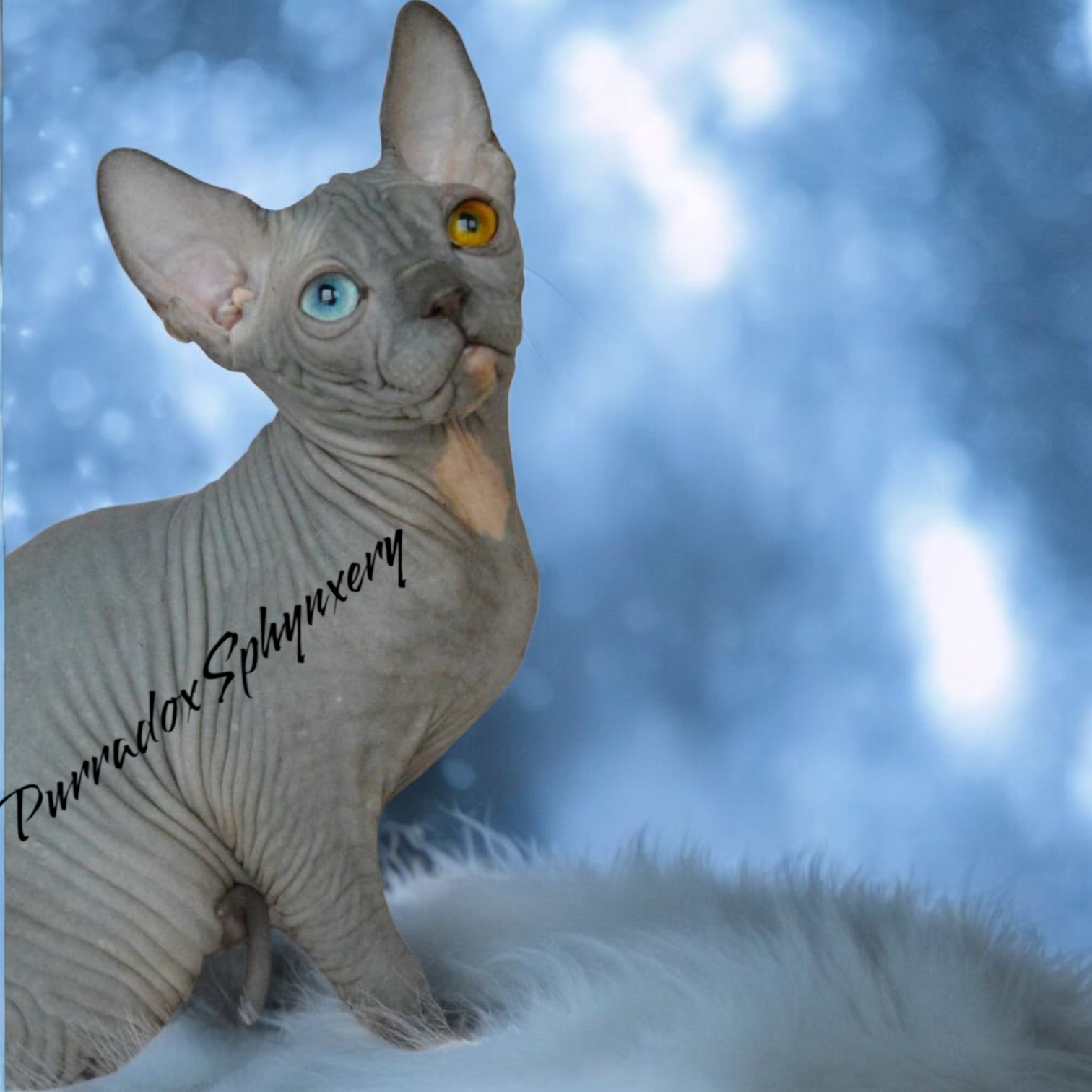Health Screening Guide for Sphynx Cat Adopters
Welcoming a hairless kitten into your home is thrilling. However, it also comes with important responsibilities—especially when it comes to Sphynx cat health screening. By understanding which tests have already been performed and what to schedule next, you’ll set your new companion up for a long, vibrant life.
Why Health Screening Matters
First, early detection of silent conditions—like hypertrophic cardiomyopathy (HCM)—can be life-saving. In fact, without screening, many Sphynx cats show no outward signs until the disease is advanced. Therefore, proactive cardiac scans give you the upper hand. Moreover, knowing your kitten is clear of genetic or infectious diseases provides peace of mind as you bond. Finally, choosing a breeder who follows rigorous protocols supports higher welfare standards across the community.
Our Standard Health Screenings
- Comprehensive Physical Exam
Every kitten receives a head-to-tail evaluation by our veterinarian before adoption. - HCM Screening by Certified Cardiologist
We schedule an echocardiogram at 12–15 months, in line with TICA’s health-testing guidelines. Thereafter, we recommend a follow-up every two years to stay ahead of any changes. - Genetic Testing
To identify hereditary risks, we run both an HCM DNA panel and the PK-DEF test. For detailed protocols, see the AAFP’s feline genetic testing guidelines. - Infectious Disease Panel
Every kitten is screened for FIV and FeLV, ensuring protection against these serious viruses.
Note: We do not run a CBC & chemistry profile or fecal parasite check as routine. Instead, those are reserved for cases where your vet flags a need based on exam findings or medical history.
Adoption-Day Documentation
On adoption day, you’ll receive a complete folder that includes:
- Veterinary Health Certificate (issued within 10 days of sale)
- Vaccination Record (FVRCP series & rabies)
- Microchip Registration Information
- Genetic & HCM Test Reports
Keeping these records handy will streamline all future vet visits and referrals.
Questions to Ask Your Breeder
Before you finalize adoption, be sure to confirm:
- “When was my kitten’s last HCM scan, and may I review the report?”
- “Which genetic panels were performed, and how do I access results?”
- “Has my kitten been tested for FIV/FeLV, and when?”
- “Can I see the veterinarian’s full physical exam notes?”
Such questions demonstrate your commitment to proactive, lifelong care.
Recommended Follow-Up Screenings
| Timing | What to Expect |
|---|---|
| 6-Month Wellness | Physical exam & weight check |
| 12-Month HCM Re-scan | Adult cardiac baseline via echocardiogram |
| Annual Exam | Physical exam (plus CBC/chem/fecal if indicated) |
| Biennial HCM Scan | For any DNA or echo-flagged risks |
By scheduling these appointments in advance, you’ll keep your veterinarian in the loop and avoid last-minute rushes.
At-Home Health Maintenance
- Nutrition: Feed a premium diet formulated for hairless cats—find meal plans and tips in our Sphynx Cat Nutrition Guide.
- Comfort: Provide heated beds and a draft-free environment to compensate for their lack of fur.
- Grooming: Gently wipe skin folds weekly to prevent oil buildup and infections.
- Monitoring: Track appetite, litter-box habits, and energy levels so you spot any changes early. For a full home-care checklist, see our Kitten Go-Home Guide.
Further Reading & Resources
- Learn more about advanced cardiac care at the Cornell Feline Health Center.
- Review breeding-best practices in our in-depth article on Health & Genetic Testing.
By following this guide—and leveraging these trusted resources—you’ll give your Sphynx cat the healthiest possible start. Ready to meet your new companion? Explore our available kittens and join our priority list today!

